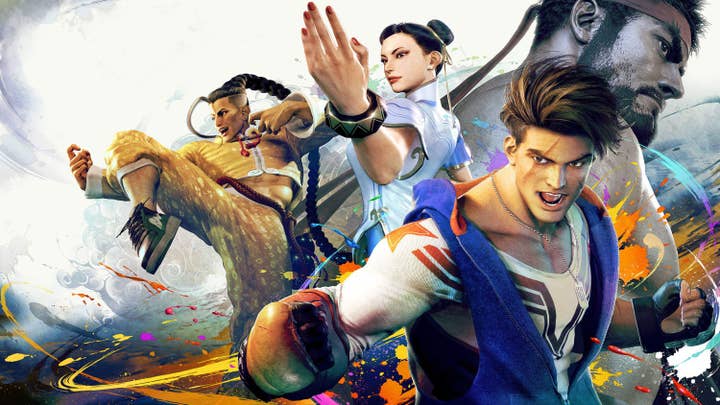Capcom's recipe for success is simple: stay the course, ignore the bandwagons | Opinion
Publishers feel immense pressure to pursue new technologies and trends, but Capcom's decade-long rise highlights the importance of focusing on the fundamentals
Fear of missing out, or FOMO, is a key part of consumer psychology that just about any businessperson has learned about at some point.
It's the reason why sales and special offers "must end soon"; it's the concept that underlies limited edition products, pre-order bonuses, and every wily form of artificial scarcity this industry has ever cooked up.
Yet, for all that, any businessperson worth their salt knows how to manipulate FOMO in consumers, very few of them are immune to its effects in turn. On the contrary, many managers and executives – especially those in technology or tech-adjacent industries like gaming – are riddled with the fear that they might miss out on the next trend, the next advancement, or the next platform that rockets to the moon.
Everyone wants to be seen to be ahead of the crowd, even at the expense of really doing their due diligence on the fad they're chasing; from NFTs and the metaverse to every manner of new business model, much of the industry's early engagement is all froth and FOMO.
That's fine, of course. Games are meant to be at the cutting edge of things, and sometimes that means losing a few fingers and looking a bit silly in the process. The problems only arise if in the process of jumping aboard every passing bandwagon, a company loses sight of the core of what it's meant to be doing.
That can mean redirecting crucial resources and focus from more traditional game development, or forcing teams to spend their precious time implementing features based on the latest buzzword, or even making lofty decisions to alienate existing fans and consumers based on some fantasy of a different, better group of consumers that are just out of sight around the next corner.
It's easy to pour scorn on the people making such decisions, and in some cases it's deserved – but it's also worth remembering that the pressure to pursue the latest fad is often external. Investors, both public and private, in tech-related companies are relentless neophiliacs and will grill company leadership for not being out in front of every trend in the headlines – which is pressure that passes down the chain to product managers and studio bosses in turn.
All of which is a long-winded way of saying how refreshing it was recently to see yet another set of record-breaking results from Capcom, a company which, while not entirely immune to such pressures, has largely become a shining example of a publisher that sticks to its guns, focuses on its strengths, and keeps charting an impressive growth path while holding to a fairly traditional business model and resisting the urges to bandwagon-jump that have consumed so many of its peers and rivals.
Capcom has become a shining example of a publisher that sticks to its guns, and keeps charting an impressive growth path
Capcom is by many metrics the industry's most successful publisher of recent years – far from the largest, of course, but certainly among the most consistent at growing their revenues and developing their core IPs into ever more popular franchises.
That's been rewarded by their stock market performance, too. As the financial press breathlessly reported after their most recent financial report, if you bought into Capcom just a decade ago, you'd now be sitting on 1200% gains.
There's no big secret to how Capcom has accomplished this – if anything, the secret is the absolute lack of a secret. While many rival publishers have been distracted by notions of pivoting to various new technologies, platforms, or markets, Capcom has done almost nothing of interest to the business press, and everything of interest to the consumer press.
We've rarely if ever had to write headlines about Capcom pursuing some new tech buzzword or pivoting to some new platform or approach. Instead, they have knuckled down on their fan-favourite franchises – Street Fighter, Resident Evil, Monster Hunter, and so on – and delivered a well-balanced roster of remakes/remasters and new franchise entries, almost all of which have been well-received by fans and critics alike.
That's not an easy thing to accomplish, of course! "Just make good games" is analysis so facile as to be worthless – but it's worth noting that doing so is strictly a development challenge.
Doing this requires keeping the quality bar high and making smart decisions about where to innovate and where to stick to the tried and tested; it's a recipe for success that is the polar opposite of wild overhauls of a game's business model or the company's structure. Capcom isn't above dabbling in the odd microtransaction or licensing out some Street Fighter odds and ends for an NFT experiment, but it's never committed significant resources to anything that's not tried and tested.

Arguably the closest it's ever come to being an early mover on an untested platform is its experiments with PSVR support in the recent Resident Evil games, but I'd wager a very good dinner that Sony picked up most of the tab for that particular excursion from the company's usual strategy.
Its most recent launch, Exoprimal, sees the company dipping its toes into online team-based shooters with battle pass systems, but even here the commitment is minimal, with none of the company’s valuable IP being attached to the project.
Compared to what's been going on at most other publishers, Capcom's traditional approach feels almost radical. Pivoting to focus on the buzzword du jour has been a deeply negative move for many companies, not just in financial terms, but worst of all in how it has eroded the value of their franchises and their relationship with consumers.
Perhaps the most impressive aspect of what Capcom has achieved in recent years isn't its share price or revenue growth, but the fact that these things have been accomplished while also building up an arguably industry-leading stock of consumer goodwill. By getting the basics right and not getting lost in the long grass while chasing after crypto or battle passes or whatever else is The Future this week, Capcom has grown its business in a way that also sets it up for genuine future success thanks to very positive consumer perception of the company and its franchises.
Perhaps the most impressive aspect of what Capcom has achieved in recent years [is] building up an arguably industry-leading stock of consumer goodwill
In some ways, this is all the more impressive because Capcom is a Japanese firm; there are a handful of others (From Software is a good example, as is Koei) that have similarly stuck to their guns, but many Japanese publishers and studios have been going through an existential crisis in slow motion over the past decade or so as the Japanese home console market has declined and the notion that they need to make "games that appeal to the Western market" has taken root.
The results haven't always been pretty. Publishers deliberately second-guessing the instincts and preferences of their developers based on some half-formed ideas about what "Western" audiences will prefer has been responsible for some awfully bland mush and the decline of some great franchises and studios.
Capcom has never once seemed to suffer from this kind of identity crisis; it has the confidence to make games as it always has without trying to second-guess what western gamers will like.
That's perhaps an easy choice when you're dealing with something like Resident Evil or Street Fighter that has always been popular overseas, but Capcom also stuck to its guns with Monster Hunter for many years without seeing an iota of western success – and ultimately it wasn't Moses who came to the mountain but the mountain that came to Moses, when western audiences suddenly fell head over heels for Monster Hunter World and delivered yet another global hit franchise to Capcom.
If there's one shadow on this landscape, it's that the company's reliance on remakes for much of its release schedule in recent years is going to get a little more tricky in the medium term.
Capcom has done a great job of managing its back catalogue, judiciously updating and re-releasing key titles in ways that maintain the quality bar while keeping franchises front-of-mind for fans – but a lot of the low hanging fruit here has been plucked. The Resident Evil remake titles were an amazing success that will be hard to replicate. It's not impossible – there's breadth and depth in Capcom's back catalogue – but they'll have to dig a little deeper in future.
If there's one shadow on this landscape, it's that the company's reliance on remakes for much of its release schedule in recent years
With the right approach, remasters or remakes of series like Dino Crisis, Onimusha, the early Devil May Cry titles, or even earlier titles like the Breath of Fire RPG series could fill in the spaces between new games in the company's line-up quite handsomely, but there aren't very many guaranteed blockbusters like the Resident Evil 2 remake.
If you're holding shares in other game companies, you might be feeling a little left out by Capcom's 1200% rise – but that's just a sign that other firms should be paying attention to this success story.
Capcom's trove of IP isn't uniquely brilliant – it's it’s certainly brilliant, but other companies have equally great franchises in their back pockets – and their approach to development doesn't have any special sauce beyond having great attention to quality and a healthy degree of skepticism about new technologies and business models that has helped the company to maintain focus on the fundamentals.
Keep your head down, make great games, and ignore the rumble of passing bandwagons; it's the simplest plan possible, but it's one that companies could learn from, and perhaps more importantly, one that investors should learn to respect.
Sign up for the GI Daily here to get the biggest news straight to your inbox









